| Indigenous Education Workshops |
|
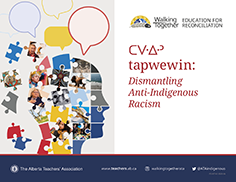
|
ᑕᐯᐧᐃᐧᐣ tapwewin: Dismantling Anti-Indigenous Racism
This introductory workshop will encourage educators to critically reflect on concepts such as systemic racism and assimilation. Historical and contemporary examples of anti-Indigenous racism will be explored, and participants will be challenged to consider their own role in dismantling anti-Indigenous racism. Educators will leave with a foundational understanding of anti-racism with a focus on Indigenous Peoples, and will also be equipped with suggested resources for further learning. Note that portions of this workshop may be difficult for some participants, particularly for Indigenous Peoples and/or those who have experienced racism.
|
|

|
Engaging in Numeracy and Connections through First Nations, Métis, and Inuit Traditional Games
Did you know that First Nations, Métis, and Inuit traditional games are great ways to make connections to numeracy? Traditional games can provide entry points to deeper understanding of Indigenous ways of knowing and further connections to the land. Get ready to learn about resources for First Nations, Métis, and Inuit traditional games and how to create authentic learning experiences.
|
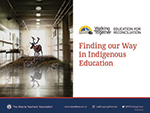 |
Finding Our Way in Indigenous Education—Connecting Hearts and Minds
Fostering and developing a braided approach in the Indigenous focused competencies and indicators continues to be a challenge for many. The following are common statements from teachers and school leaders across the province; “I don’t know what I don’t know”, “I’m afraid to say and do something offensive” and “I just don’t know where to begin”. Come and learn resources and strategies to deepen understanding of Indigenous-focused competencies in the new Teaching & Leadership Quality Standard.
|
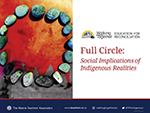 |
Full Circle—Understanding Social Implications of Indigenous Realities
This workshop will examine core causes of intergenerational trauma, challenge common myths and misconceptions, as well as explore activities to foster effective relationships with First Nations, Métis and Inuit students, families and community. Participants will explore assimilation strategies that have contributed to many current realities of Indigenous students, families and community. You will gain an increased understanding of physical, mental, social and spiritual impacts, and strength-based initiatives to contribute to the advancement of the reconciliation process.
|
.jpg) |
Indigenous Matriarchy—Balance Through Truth, Justice and Reconciliation
“For our young women, for our grandmothers, for our women who travel with us, we are sacred because we exist. We are sacred because we have survived.”
– Audrey Siegel, The National Inquiry Elders and Grandmothers Circle
Throughout this session you will examine historical and contemporary issues, challenges and inequities for Indigenous women, girls and Two Spirit, including action to support reclaiming power and place. You will deepen your understanding of why it’s crucial to support Indigenous women, girls and Two Spirit and how you can contribute to restoring balance within education systems. Please note that this workshop includes discussions of Missing and Murdered Indigenous women and girls which will be upsetting to some.
|
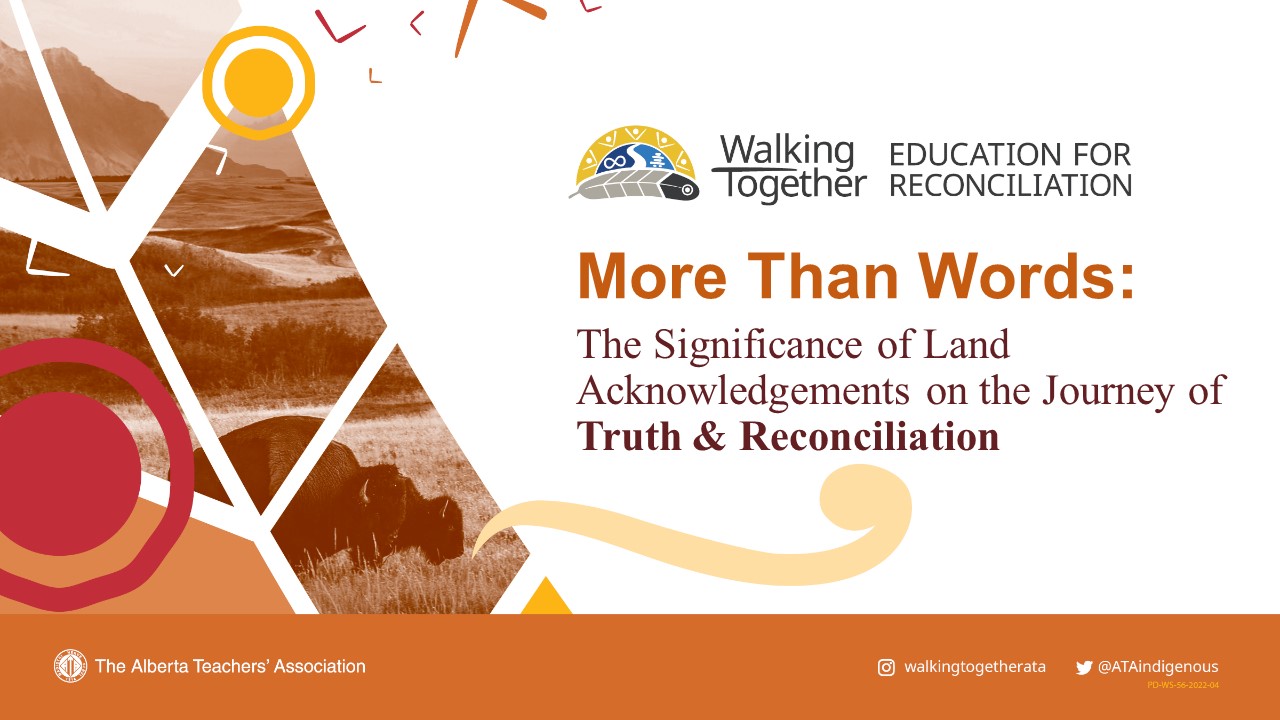 |
More Than Words: The Significance of Land Acknowledgements on the Journey of Truth and Reconciliation
Sharing a land acknowledgement has become a common practice and there is potential for a land acknowledgement to be perceived as an empty gesture if it’s not paired with concrete actions. Throughout this session, participants will have an opportunity to reflect on the deeper meanings of a land acknowledgement and consider ways they can mobilize land acknowledgements in their own professional practice. Participants will reflect on their own connections to people and place, and consider how land acknowledgements and their associated actions can build relationships and contribute to Truth & Reconciliation.
|
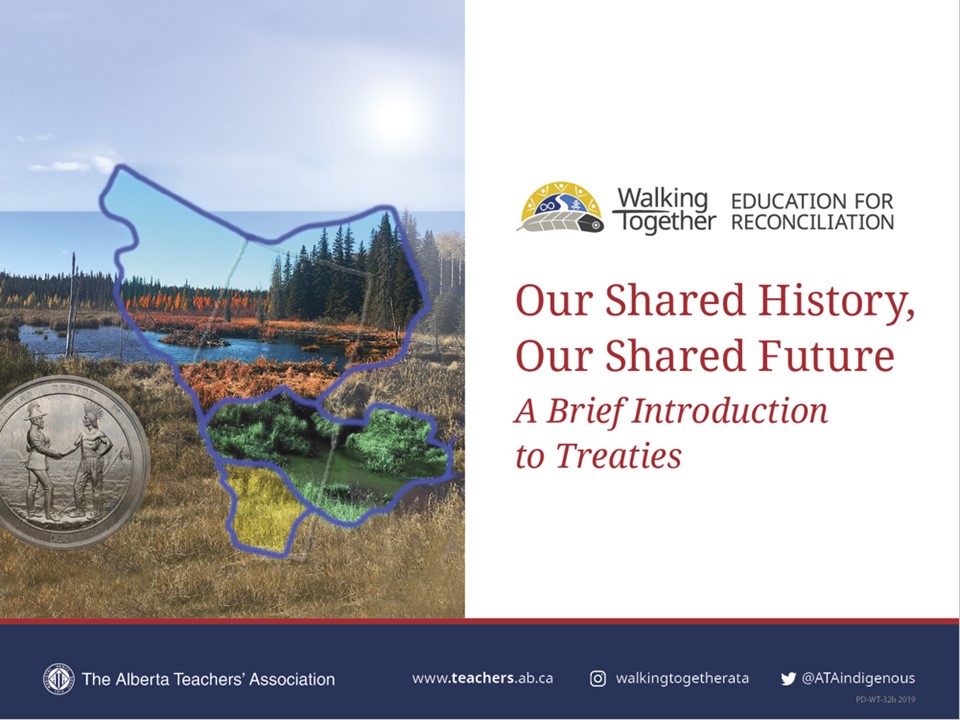 |
Our Shared History, Our Shared Future—A Brief Introduction to Treaties
This introductory workshop will explore historical and contemporary information and resources relating to numbered treaties within present-day Alberta. Educators will build their understanding of the acknowledgement of land and people, as well as our shared responsibilities to the land and each other. Participants will engage in dialogue and reflect on their professional learning in order to build capacity in treaty education.
|
|
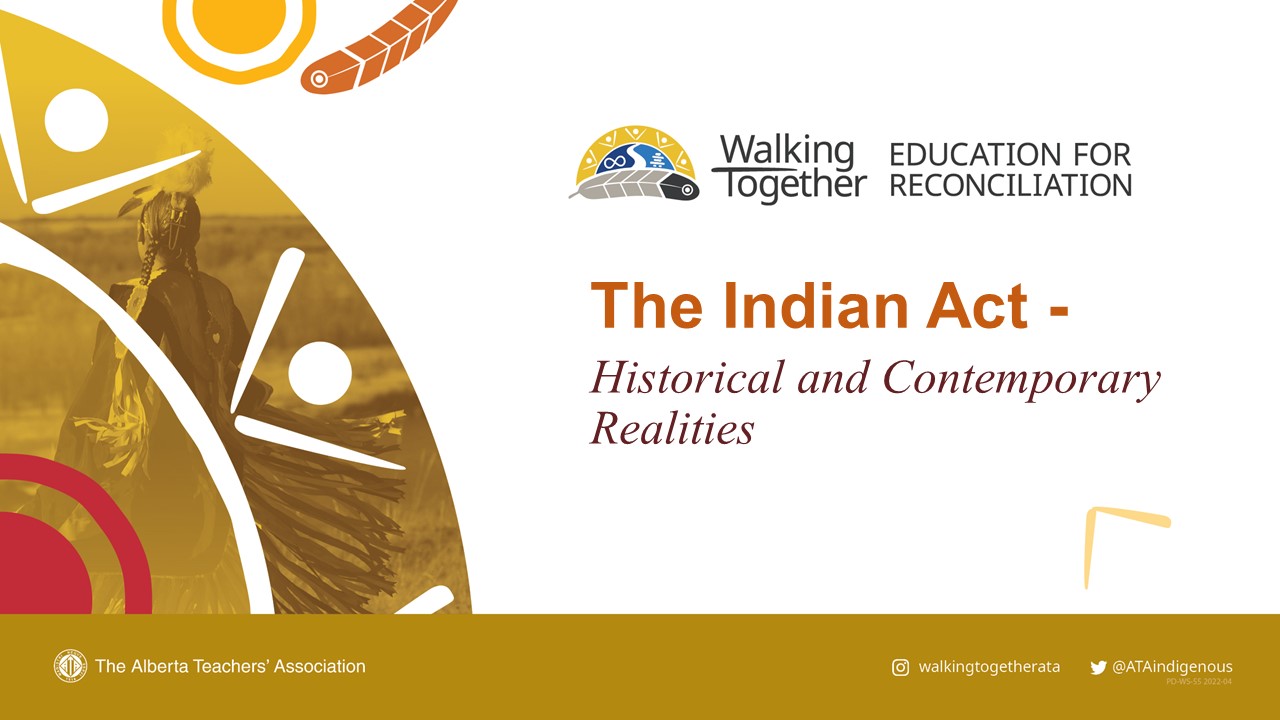
|
The Indian Act—Historical and Contemporary Realities
The Indian Act has left a deep scar for many. Throughout this session, participants will explore foundational information about the Indian Act, and examine historical and contemporary impacts of this aggressive, assimilation tactic. Participants will leave this session with an increased understanding of the complexities of the Indian Act, including resources and strategies to contribute towards reconciliation.
|
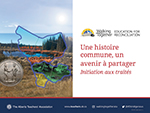 |
Une histoire commune, un avenir à partager—initiation aux traités
Cet atelier propose une introduction à des ressources et à des renseignements historiques et contemporains au sujet des traités numérotés qui couvrent le territoire de l’actuelle province de l’Alberta. Les enseignants développeront leur compréhension de la signification des déclarations de reconnaissance des peuples et des territoires, ainsi que de nos responsabilités communes aussi bien à l’égard de la terre que les uns envers les autres. Les participants engageront un dialogue et réfléchiront à leur perfectionnement professionnel en vue d’acquérir les compétences nécessaires en matière d’éducation relative aux traités.
|
